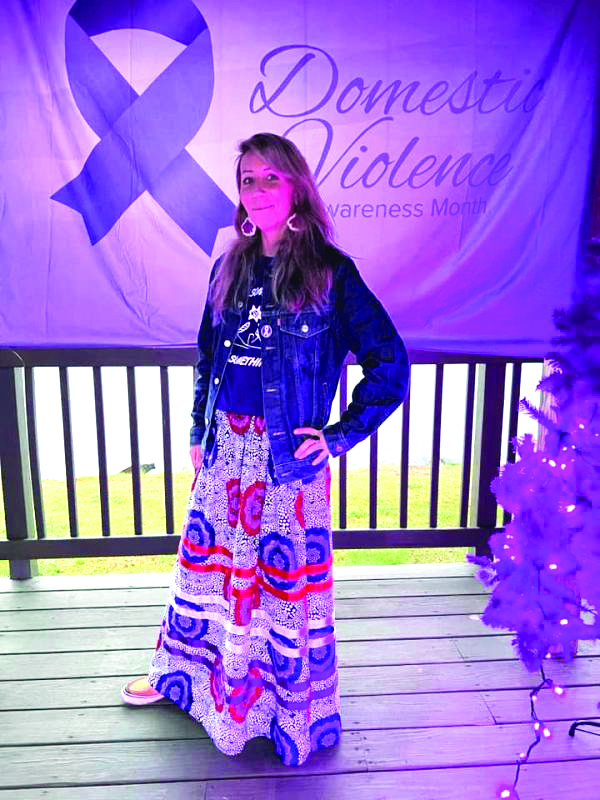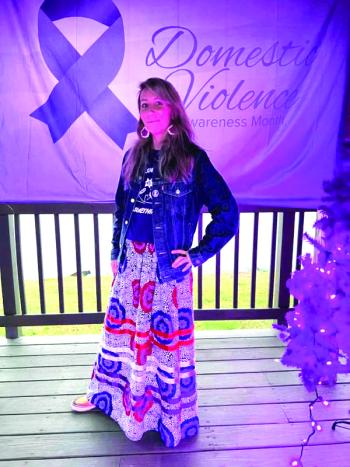A look inside Maine's Indigenous Domestic Violence Centers
Domestic violence happens every day, to all types of people.However, some communities are statistically more at risk than others, and as Native American Heritage Monthdraws to a close, indigenous advocacy centers across the state continue their work.
Maine is home to four indigenous tribes: the Maliseet, Micmac, Penobscot, and Passamaquoddy, known collectively as the Wabanaki, “People of the Dawnland.” Each community maintains its own tribal government, school, natural resource management, as well as a Domestic Violence/Sexual Abuse Advocacy center that is accessible to tribal members.
A 2016 study conducted by the National Institiute of Violence found that American Indian and Alaska native women are 1.2 times as likely as non-Hispanic white-only women to have experienced intimate partner violence. Men are 1.3 times as likely as their non-Hispanic white-only counterparts. This includes psychological aggression and physical violence by intimate partners, stalking, and sexual violence.
The study also found that most perpetrators are non-native, with 97% of female victims and 90% of male victims having experienced violence from at least one interracial perpetrator. A little over 30% of native men and women have experienced similar violence from a fellow indigenous person.
“There was definitely a need,” said Jessica Ward, program coordinator for the Penobscot Nation’s DV/SA center.The center, which began in 2011, provides services to an average of 30 to 40 tribal members a year, according to Ward. This includes Penobscot, as well as other Wabanaki whose centers may be too faraway to offer aid.She spoke about how helpful it can be for survivors to seek support from an organization that has a shared understanding of their culture and traditions. “We’re small, so there’s a trustthere,” she explained.
The Penobscot center offers a myriad of needs-based services from hospital accompaniments to animal fostering (since many people won’t leave abusive situationswithout their animals). Ward and the organization’s two other employees also taketurns manninga 24/7 hotline. In addition, they offer a five-bed shelter with two family rooms that, while targeted at native and tribal members, is open to non-natives. The most successfulprogramfocuses on transitional housing.
“In the beginning, we start off with heavy support, wrap them up as much as we can, and then slowly step back,” explained Ward. For survivors who need to move and who meet the needed criteria, the organization uses grant funding to cover the initial security deposit and the first six months’ full rent, if needed. After that, the contribution will decrease so the person can get used to handling the new responsibility. Ward said it is also common for them to receive clothes and furnituredonations from the community to further ease the process.
“Working out here is amazing. The culture and the community members are very supportive,” said Ward. “But the most rewarding thing is when you get somebody out of a very unsafe situation and they're able to, within a year, start fresh, have a more positive outlook, a healthier outlook.”
Beyond the social services, the center works to increase community awareness during Domestic Violence Awareness Monthin October with weekly events, including tree lighting, singing and drum performances, and a walk.They also honorMissing and Murdered Indigenous Women’s Month in May. While there are no officialstatistics on the rate in which native peoples are murdered and abducted (including for purposes of human trafficking), the U.S Department of Interior’s Indian Affairs has identifiedthe issue as a “crisis” and has called for further investigation.Last year, Ward said theorganizationhelped three victims of human trafficking, which was “pretty high” for the small community.
Ward hopes to add another staff member to expand the program’soutreach and case management capabilities.She is also looking to broaden the center’s grant funding to fill in need gaps. For example, most of the current grants target people who live in apartments, which makes it harder to help people who own a home.Another issue is providing the funds people need to keep possession of things likevehicles, whichcan be an essential componentfor survivorstomaintain their job status and remain independent from their abuser.Otherwise, people might go back for financialstability.
“You deserve peace,” the center’s website declares, and Ward and her staff aimto provide support forthe evolving needs of their community so survivors can find that peace.
For those in need of help, the Penobscot DV/SA center can be reached at its 24/7 Support Line: (207) 631-4886.

























